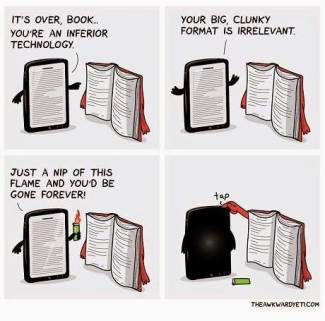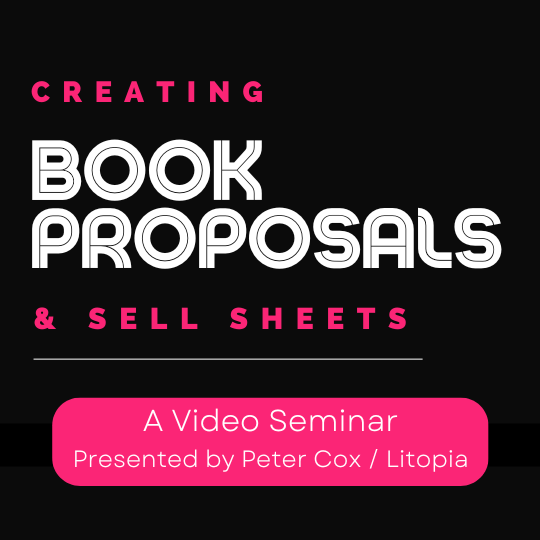Paul Whybrow
Full Member
This article on which book format is best for enhancing literacy and language skills and for bonding with the parent seems to back up other surveys about e-books:
Paper beats pixels: Research suggests parents avoid e-books when reading with children
E-readers certainly have their advantages, mainly being able to carry dozens of titles, but we interact with a screen differently to how we relate to a physical object. A book isn't just the words on the page, it's a physical object that we feel with our skin, that we manipulate with our hands and which smells in a way that's redolent of a pleasurable experience—think of the odour of a new bookshop and of a second-hand books emporium. Hard to get turned on by the smell of a smart device, be it a laptop, phone or Kindle.
Having a glass screen between us and the words is not only a barrier but also carries connotations of being work-related or a way of killing time with meaningless web surfing. Neither attitude is conducive to achieving the type of concentration needed to learn from and enjoy a book.
A 2014 survey showed that recall of events in a mystery story was worse by those who read using a Kindle:
Readers absorb less on Kindles than on paper, study finds
Furthermore, reading from a device that's basically shining a light into your face, is a poor way of relaxing while you're in bed, as your body needs to produce melatonin for you to sleep properly:
Don't Let Your E-Reader Keep You Up at Night
I sound like I'm against e-books, which isn't the case, what with 45 titles published and five crime novels to begin releasing this summer. I must admit, I've never read a novel in digital format. The most I've read on-screen is probably a few thousand words of a PDF download writing guide.
I'm online for 12 hours daily, up until midnight, 90 minutes before I fall asleep—time I fill with reading a book in physical form—my brain appreciates the change of pace.
If you have children, how do you read to them?
What format do you read for pleasure...and for work?

Paper beats pixels: Research suggests parents avoid e-books when reading with children
E-readers certainly have their advantages, mainly being able to carry dozens of titles, but we interact with a screen differently to how we relate to a physical object. A book isn't just the words on the page, it's a physical object that we feel with our skin, that we manipulate with our hands and which smells in a way that's redolent of a pleasurable experience—think of the odour of a new bookshop and of a second-hand books emporium. Hard to get turned on by the smell of a smart device, be it a laptop, phone or Kindle.
Having a glass screen between us and the words is not only a barrier but also carries connotations of being work-related or a way of killing time with meaningless web surfing. Neither attitude is conducive to achieving the type of concentration needed to learn from and enjoy a book.
A 2014 survey showed that recall of events in a mystery story was worse by those who read using a Kindle:
Readers absorb less on Kindles than on paper, study finds
Furthermore, reading from a device that's basically shining a light into your face, is a poor way of relaxing while you're in bed, as your body needs to produce melatonin for you to sleep properly:
Don't Let Your E-Reader Keep You Up at Night
I sound like I'm against e-books, which isn't the case, what with 45 titles published and five crime novels to begin releasing this summer. I must admit, I've never read a novel in digital format. The most I've read on-screen is probably a few thousand words of a PDF download writing guide.
I'm online for 12 hours daily, up until midnight, 90 minutes before I fall asleep—time I fill with reading a book in physical form—my brain appreciates the change of pace.
If you have children, how do you read to them?
What format do you read for pleasure...and for work?





